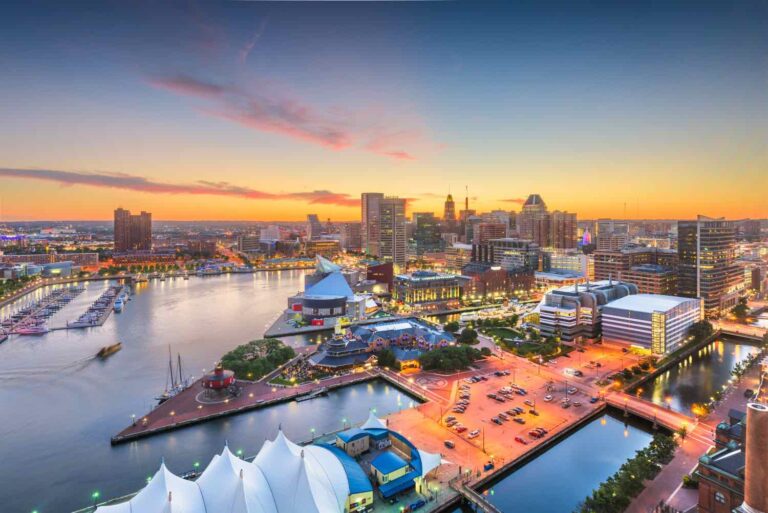
Two senate bills and one house bill became officially filed in Maryland regarding recreational cannabis. SB 692 and SB 833 are in the senate and HB 837 is in the house. Additionally, Delegate Luke Clippinger, D, who filed HB 837, also filed HB 1. This bill, if approved by the Maryland General Assembly, would put recreational cannabis legalization on the 2022 general ballot.
Recreational Cannabis Bill Details
The two bills introduced in the senate, SB 692 and SB 833, both offer a higher level of cannabis possession than HB 837 and other states. Homegrowth is also an option, which has become a point of contention in other states. Expungement of previous possession records are also addressed in different ways.
SB 692
Sponsored by Senator Jill Carter, D, SB 692 would allow adults 21 and over to purchase and possess up to four ounces of recreational cannabis flower. Individuals can also grow up to six cannabis plants at home. Anyone growing up to six additional cannabis plants will receive only a $250 fine. Beyond 12 total plants, individuals could receive misdemeanor penalties.
Tax revenue would first cover the administrative costs for creating and running the recreational cannabis program. Following those costs, 60 percent of tax revenue from recreational sales would go to communities most hurt by the war on drugs.
An escalating taxation system would become established. From the day of legalization through 2026, each sale would have a 10 percent excise tax attached to it. Then from 2026 to 2028 the excise tax would increase to 15 percent. Finally, after 2028, excise tax for recreational cannabis sales would settle at 20 percent.
Minority-owned businesses must represent at least 30 percent of all cannabis businesses licenses. Additionally, expungement of previous cannabis related convictions, such as possession, would occur.
“The equity is the primary motivation,” Senator Carter explained earlier this year. “Marijuana legalization in and of itself is secondary to the good we can do with the equity proposals in the bill.”
SB 833
While similar to Senator Carter’s SB 692, SB 833, sponsored by Senator Brian Feldman, D, varies in a few aspects. First, only two ounces of cannabis flower can be purchased and possessed by an individual. Four home growth plants is legal, with five to seven plants total costing individuals a $250 fine. Expungement of previous charges and other escorts for possession would happen automatically under SB 833.
SB 833 would also establish an escalating taxation system similar to SB 692. Recreational cannabis sales would receive an excise tax of 10 percent through 2026. From 2027 to 2028, excise tax would sit at 15 percent. Then in 2028, excise tax would settle at 20 percent per retail sale.
Finally, after administrative costs of creating and running the recreational cannabis program, 25 percent of tax revenue would go to the community reinvestment and repair fund. 20 percent would fund voluntary substance abuse and mental health programs. And 10 percent would go to each a Social Equity Startup Fund and historically Black colleges and universities across Maryland.
HB 837
In the other legislative chamber, Delegate Clippinger introduced HB 1 for voters to approve. The question is simply if recreational cannabis should be legal in Maryland. Beyond that, there isn’t any structure for limitation, sales, or taxation. That’s where HB 837 comes in. It’s a companion bill to HB 1 should recreational cannabis receive approval at the polls.
Adults 21 and over could purchase and possess up to 1.5 ounces of recreational cannabis. Up to 2.5 ounces of cannabis would become decriminalized, something that neither of the senate bills covers. SB 833 also looks to automatically expunge prior cannabis charges from the state’s judicial records. For those who are currently serving time for related charges, re-sentencing hearings would be provided.
To help women and minority owners readily participate in the Maryland recreational cannabis market, the Cannabis Business Assistance Fund would become established to provide grants, loans, and additional support.
One part of HB 837 that sets it apart from the proposed senate bills is the research aspect. Under this house bill, the state must research:
- Patterns of cannabis use
- Impaired driving
- Prenatal health
- Hospitalization
- Calls to poison control related to cannabis
- Barriers to minority communities to enter the recreational cannabis market
“Too many people have already suffered the consequences of a misguided war on drugs,” Delegate Clippinger said. “House Bill 837, together with House Bill 1, is a rapid but responsible approach to legal recreational cannabis.”
Delegate Clippinger added, “Addressing the overwhelming disparities that have impacted people of color—especially black and brown Marylanders—will be our top priority. Fueled by the war on cannabis, our current laws have disproportionately led to the arrest and criminalization of people of color.”
Next Steps
While each of these bills have been introduced to their respective chamber, no official date is set for their debate. Each will have to go through committee discussions before making it to the chamber floor for debate. Should a bill pass the floor debate, it moves to the opposite chamber to follow the same process.
If a bill passes both the House and the Senate, then it moves on to the governor for their signature. Governor Larry Hogan, R, has vetoed some cannabis bills in the past. However, lawmakers have overturned the governor’s vetoes with a ⅗ majority vote in both chambers. For now, recreational cannabis is being discussed by lawmakers and is a forefront topic. As more information becomes available, we will update you with the latest.
Make sure to check back for more cannabis, hemp, and psychedelic related news.